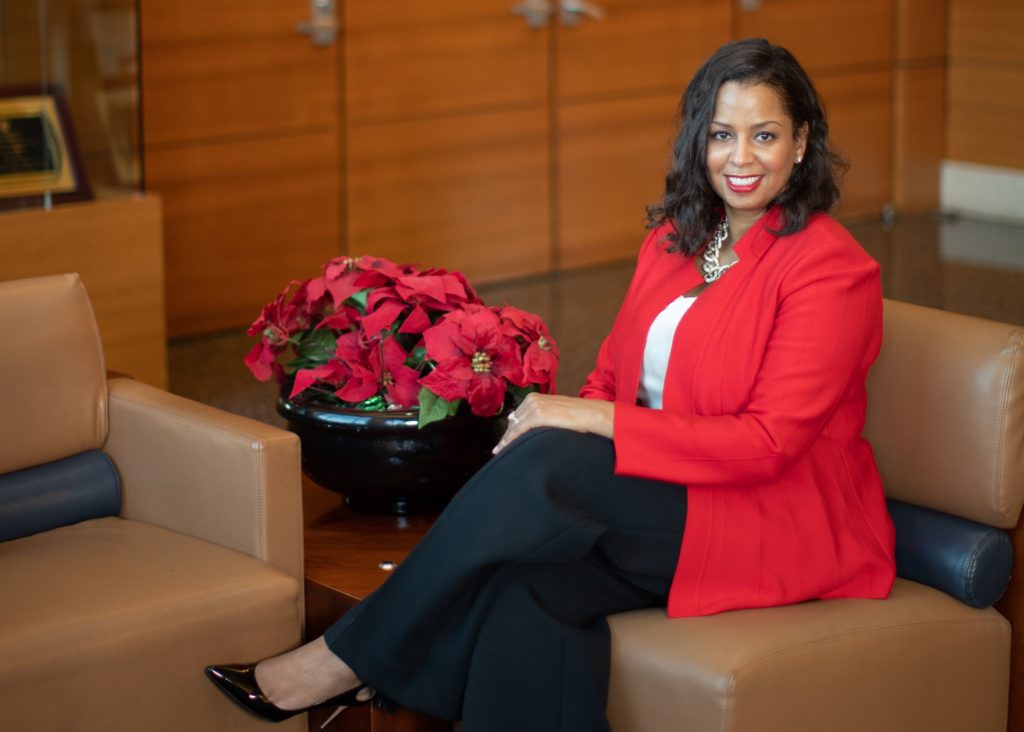Cydonii Fairfax has emerged as a leader of the Houston corporate legal community and one of the most influential role models on diversity and public service in Texas. As general counsel of the Metropolitan Transit Authority of Harris County (METRO), Fairfax is playing a critical role in the implementation of a $7.5 billion transformation of one of the largest public transportation systems in the U.S. She also has implemented internal policies and practices that have led to substantive results. Nearly two-thirds of the lawyers in METRO’s legal department are women or ethnic minorities, including the top two posts. And she aggressively sends work to minority-owned law firms.
Fairfax is a finalist for the 2021 Houston Corporate Counsel Award for Achievement in Diversity and Inclusion. The Lawbook’s Mark Curriden had a chance to question her about what outside counsel need to know if they want her business and her efforts at the University of Houston to increase diversity in the legal industry pipeline.

The Texas Lawbook: What do you see as the most important legal and business issues facing corporate legal departments such as yours in the year or two ahead?
Cydonii Fairfax: Legal departments will likely continue to focus on cybersecurity, regulatory compliance, and labor & employment matters, including advising on diversity, equity and inclusion initiatives, and investing in technology to improve the department’s efficiency and remote interactions.
Lawbook: What do you look for in hiring outside counsel?
Fairfax: We have excellent lawyers in the legal department who have extensive experience in various practice areas along with invaluable institutional knowledge. They provide legal advice and counsel daily to all departments in an organization with over 4,000 employees. However, because of limited resources, we may need to hire outside counsel from time to time to help us handle specialized matters and litigation.
Lawbook: Do you have pet peeves regarding outside counsel?
Fairfax: Yes, they should be familiar with the vital public services that we provide in the region and the agency’s culture.
For Mark Curriden’s full profile of Cydonii Fairfax Click Here.
Lawbook: What does outside counsel need to know about you?
Fairfax: That we value diversity, equity and inclusion at METRO and expect our vendors to do the same. We also expect to be kept updated on matters and not surprised by billings.
Lawbook: How has the job or role of in-house or GC changed during the 18 years you have worked in a corporate legal department?
Fairfax: During recent years, the role of general counsel has certainly continued to evolve to being more of a strategic business advisor, regularly commenting on all aspects of the business. A general counsel has also had to consider and stay abreast of technological trends that will help improve their department’s productivity and efficiency.
Lawbook: Tell us about your pre-law efforts at the University of Houston.
Fairfax: One way that attorneys in the department help drive diversity in the legal profession is through outreach to the community and participation in various affinity groups. For instance, to help increase diversity in the educational pipeline leading to the legal profession, we regularly speak to diverse groups of pre-law and law students at the University of Houston and Texas Southern University and focus recruitment efforts for our long-standing summer internship program on such local law schools. For instance, Professor Alison Leland heads a unique pre-law honors program at the University of Houston that allows a small group of students to matriculate to the University of Houston Law Center on an accelerated basis, following their junior year. She has invited me to campus to speak to the students on a number of occasions. We have also invited the students to take METRORail downtown to our offices to meet other junior and senior METRO attorneys and learn about the myriad areas of law that they practice as well as what a day in the life of a transit lawyer looks like. We believe that exposure is key in deciding which area of law to practice and for students to visualize different public service career paths.
